Achieving high rankings in organic search results is important but it is only a part of the success because the result still has to get clicked on. Google uses many factors to rank web pages but once they are ranked there are ultimately three that have impact on a result being clicked on or not – the displayed URL of the search result, its title and snippet. While a result’s snippet (typically contents of the page’s meta description if available) has no impact on rankings the page’s title tag does. And so does the URL, but that is a separate topic.
Custom snippets and page titles
In January 2012, Google Webmaster Tools Analyst Pierre Far wrote a post titled Better page titles in search results. In this post he explains that Google uses algorithms to generate alternative titles for search results, especially for pages that have non-descriptive titles (such as those simply using the word “Home”), duplicated titles across many pages of the site, too long or too short titles and finally, pages that have no title at all.
What is more interesting though is that Google uses alternate titles and snippets even when the tags on the page have descriptive content meeting all the guidelines. This happens because some pages rank well for a variety of search terms and a single title and/or snippet might not be the best to show for all search queries. In the post we read:
“… we have algorithms that generate alternative titles to make it easier for our users to recognise relevant pages. Our testing has shown that these alternative titles are generally more relevant to the query and can substantially improve the clickthrough rate to the result, helping both our searchers and webmasters.”
It is nice that Google tries to improve click-through rates by customising titles and snippets of a page depending on the search query. This is something that we cannot do. But if the page title has impact on a page’s rankings, then what impact do those alternate titles generated by Google have on those rankings? And should we put in all the effort into optimising page titles, if they get modified in the end?
Custom snippet and title generation
In March 2013, Google was granted a patent that provides some hints which can help us answer our question.
Generation of document snippets based on queries and search results
- US patent: 8,145,617
- Assigned to: Google Inc.
- Inventors: Alexandre A. Verstak, Anurag Acharya
- Filed: 18 November 2005
- Granted: 27 March 2012
In the Abstract of this patent, we can read:
“A document retrieval system generates snippets of documents for display as part of a user interface screen with search results. The snippet may be generated based on the type of query or the location of the query terms in the document. Different snippet generation algorithms may be used depending on the query type. Alternatively, snippets may be generated based on an analysis of the location of the query terms in the document.”
Interestingly, there is actually more than one algorithm used to generate custom snippets which is selected based on the type of search we do or where the search term appears in that search result. But more importantly (in light of this post), this tells us that alternate snippets are generated as part of the search results presentation process. Let’s have a closer look at the following diagram which illustrates the process of a typical search query:
The “Client” (170) – which is us – does a search in Google. The request is received by the Front End Server (140) and gets passed on to the Search System (120). The Search System looks in its Index (150) for documents (web pages) relevant to our search query to provide in search. Once the documents are found and retrieved, they are ranked. Next, the already ranked results are provided to the Presentation System (130) which modifies the results if necessary by generating custom snippets without any further changes to the ranked order. Finally, the modified results are provided to the user (Client) through the Front End Server.
Simply put, results for our search query first get ranked and then are (optionally) modified before being presented to the user without any further changes to their ranked order. So, what we have found out here is that customising snippets is only part of the presentation process and has no impact on ranking pages which is a process that happens before that. Great, but hold on! We are talking about snippets which do not have impact on rankings anyway. What about page titles?
Although the patent we have just looked at in this post is about generating custom snippets, it outlines the entire process of delivering search results. Whether it is the snippet that gets modified or the title of a result, both are part of presentation process of search results which happens after results are ranked.
Custom snippets and titles in SERPs
Now that we are clear at which point the snippet customisation happens, let’s look at when snippets are likely to be modified. A test involving the comparison of snippets in Google’s SERPs and content of meta description tags shows that the more long-tail a search query is the more often the snippet is customised. In our test, pages were displayed with custom snippets only 30% of the time for general search queries consisting of two words. The more specific a search query gets (contains more words) the less frequently the page’s original meta description is used in SERPs. For searches consisting of five to six words, the snippets were almost always modified.
The reason is quite simple really. It is typically more difficult to rank high for a general search term (more competition) and if a website does rank high it most likely has a relevant page. If that page has a good quality meta description it will most likely not be modified. However, if that same page ranks for some specific, long-tail search terms because its content is still relevant chances are the same meta description is not anymore. In 90-100% cases, the page received a custom snippet for long-tail searches. What do I mean by “rank high”? Let’s have a look at some more data.
Pages ranked on position 1 in Google for two-worded search terms never got a custom snippet. The customisation increases with long-tail searches as shown above. Things look similar for top 10 search results. However, custom snippets are almost always applied for results below top 10 (2nd, 3rd and so on page of SERPs).
The reason is that if a page ranks high (I mean 1st place or in the top 5) that is because it is typically relevant to the search query and will rarely need customisation. Assuming it does not have a missing, too long, too short meta description to start with. The smaller the relevancy, the lower the rank position and the higher need to modify to the search result. What about page titles?
Our analysis showed that 75% of changes to titles involved only appending the brand name at the end of the title. The remaining 25% of changes involved reducing the title’s length (to no more than 70 characters) or rephrasing it by removing any filler words and adding the search term or part of it.
Conclusions
Custom titles and snippets do not interfere with our rankings directly and their purpose is to improve click-through rates. But just because Google will attempt to create custom or modified titles and/or snippets that are missing or improve existing ones does not mean we should put less effort into optimising them. In fact, it emphasises the importance to do so because the better they are the less customisation will happen (which is not always that great by Google either!). You can start by working on pages flagged with an issue in Google Webmaster Tools “HTML Improvements” section.
But even then snippets will be modified to accommodate for all the different search terms the page may rank for because a single version is not enough. And we of course cannot implement more than one meta description on a page. But what we can do is create a new page if there is considerable search for a phrase and we do not quite have an existing page for it. This new page could ultimately rank higher, have an even better title and snippet that will not need modifications and would likely receive higher click-through rates. This is yet another way to find any missed opportunities and content gaps.
Arkadiusz Kostrzycki
Latest posts by Arkadiusz Kostrzycki (see all)
- Three Things You Can Do To Implement Effective Geo-Targeting - September 7, 2017
- How to structure XML sitemaps for global sites - November 27, 2014
- Is rel-alternate hreflang-x A Geo-Targeting Factor? - November 20, 2014
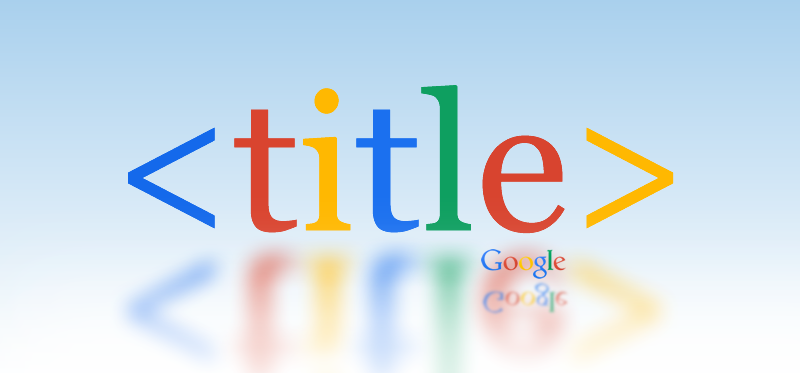
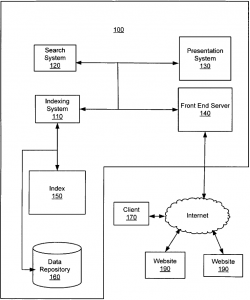
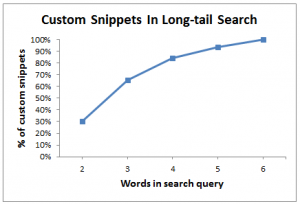
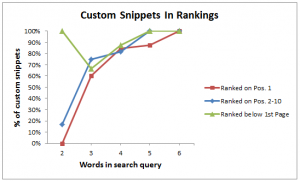
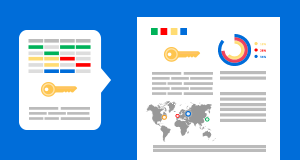





Hi. Thanks for article. It’s very important information. Good rank for me.